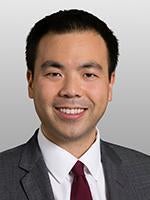Last month, the Eastern District of Virginia held that a patent covering a medical device may not be eligible for an extension unless the patent “claim[s] the use of the particular product that underwent FDA review.” The case serves as an important reminder that, for purposes of securing a patent term extension, applicants claiming methods of using a medical device should try to draft claims that particularly recite features of the device for which U.S. Food and Drug Administration (FDA) review is anticipated. Although not controlling law, the district court decision presents an interesting analysis of patent term extension eligibility for medical device patents containing method claims. A copy of the court decision can be accessed here.
Background
Before they are eligible for marketing, new medical devices generally are subject to review by FDA. The review process can take a substantial amount of time and, in effect, shortens the amount of time patentees have to sell a medical device on an exclusive basis. A patent term extension, which is governed by 35 U.S.C. § 156 (“Section 156”), is an important way to restore some of that lost time.
One requirement of Section 156 is that the patent must “claim[]” the product undergoing review. Section 156 mentions that patents claiming methods of “using a product” are also eligible for extensions. Thus, patents claiming a method of using a medical device are potentially eligible for a patent term extension. What this means for practitioners, however, is not necessarily clear from the statute.
District Court Decision in Angiotech Pharmaceuticals Inc. v. Lee
In Angiotech, which appears to be the first decision of its kind, the Eastern District of Virginia offered some direction on the patent term extension issue. The decision resolved a dispute about a patent covering methods for biologically stenting blood vessels using a particular class of drugs. The exclusive licensee under the patent had previously received FDA approval for a device—a self-expanding nitinol stent coated with a drug belonging to that class—and was seeking a patent term extension on that basis. The U.S. Patent and Trademark Office (PTO) denied the extension on grounds that the method claims, which recited the step of “administering … a cytoskeletal inhibitor” to a blood vessel, failed to recite any structural elements of the actual stent device.
On review, the district court ruled in favor of PTO. In doing so, the court cautioned that the Section 156 analysis must “focus sharply on the particular product allegedly claimed.” The court likewise advised that “the reference [in Section 156] to ‘a product’ indicates that an eligible patent must claim one product, or at least a particular product, from among the entire set of drug products and medical devices that qualify under [Section 156].” (emphasis in original). The court then ruled that because the claims at issue did not recite any structural limitations, it could not be said that the patent claimed the particular device that was approved by FDA.
The district court acknowledged that use of the stent device may have constituted infringement of the method claims at issue. The court reasoned, however, that the concept of what is “claimed” for purposes of Section 156 is different from the concept of infringement. The court found support for this proposition in Hoechst-Roussel Pharmaceuticals, Inc. v. Lehman, a 1997 decision from the U.S. Court of Appeals for the Federal Circuit, involving a term extension dispute over a drug product. In Hoechst-Roussel, a copy of which can be accessed here, the appellate court held that a patent that claims a metabolite of an approved drug—as opposed to the drug itself—does not “claim” the drug for purposes of Section 156, even if the metabolite claims may be infringed by the drug.




 />i
/>i

